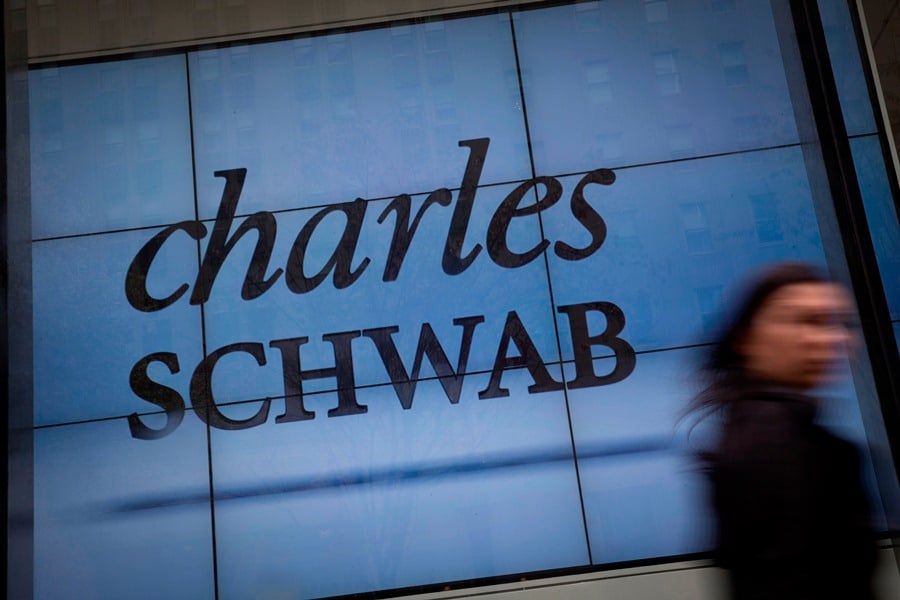Charles Schwab's
announcement Thursday that it was moving from an assets-under-management fee to a flat monthly charge for its robo adviser sent shock waves throughout the industry.
For Gavin Spitzner, president of industry consultant Wealth Consulting Partners, this is the modern-day equivalent of May Day 1975, when the deregulation of commissions allowed for the creation of discount brokerages like Schwab in the first place.
"We're going to look back at this day and say it was a monumental change in our business," Mr. Spitzner said.
Instead of a 0.28% AUM fee that it had been charging, Schwab will charge clients a one-time $300 financial planning fee and a $30 flat monthly subscription that will not increase with assets. For just $360 a year, clients in the service, which is being renamed Schwab Intelligent Portfolios Premium, will get investment management, a financial plan and unlimited guidance from a certified financial planner, whether they have $200,000 invested or $2 million.
Schwab isn't the first in the industry to adopt the subscription-fee model. Advisers in the
XY Planning Network advocate the model and Cetera Financial Group
recently announced plans to support advisers who want to charge financial planning fees independent of AUM.
But a firm of Schwab's size embracing the subscription model and offering it directly to retail investors could move the needle in terms of adoption across the industry. Schwab has about 300,000 accounts and $37 billion across its digital offerings, according to Bloomberg. All accounts with at least $125,000 will be moved over to the subscription fee, although the $300 fee will be waived.
It may only be a matter of time before other firms follow suit.
"Now that Schwab has officially launched their subscription model to layer more financial planning onto their 'robo' solution, I'm giving Vanguard three months – six tops – to similarly launch a high monthly subscription tier for [Personal Advisor Services] for a deeper planning relationship," tweeted Michael Kitces, co-founder of the XY Planning Network.
Mr. Kitces has been beating the "fee-for-service financial planning" drum for many years, but says the movement is getting validated from all directions right now. AdvicePay, the
technology he launched with XYPN co-founder Alan Moore to help advisers collect subscription fees, has signed on 17,000 advisers, he said.
"Though without a doubt, having a firm as large as Schwab move into the monthly subscription model for financial advice validates the approach at a whole other level," Mr. Kitces said.
Mr. Spitzner believes the move will help make Schwab Intelligent Portfolios a destination for baby boomers looking to consolidate retirement accounts. People nearing retirement often have large account balances but have questions they need answered from a dedicated adviser. Offering this service for only $360 a year "creates a killer value proposition," he said.
"It's an easier entry ramp for self-directed investors to come into planning and advice at a lower price point," Mr. Spitzner added. "This is a massive shot across the bow to full-service providers who have become very comfortable charging 1% to 1.5%."
Vance Barse, a wealth strategist at Manning Wealth Management, agrees that advisers who charge full-service prices while only providing portfolio management could lose some accounts to the subscription fee model.
However, Mr. Barse is concerned that people with complex needs may be wooed by lower costs and end up being underserved.
"Are these CFPs working alongside the client's CPA and estate planning attorney?" Mr. Barse asked. "This news leaves me with more questions than answers, and I am inclined to open an account to evaluate first-hand how evolved these planners are and what the client experience is like."







